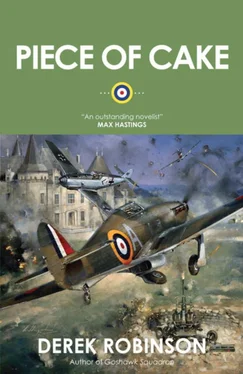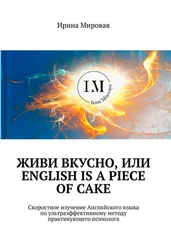“You’ve missed one thing,” CH3 said. “If the air battle doesn’t matter, why is Hitler going flat-out to win it?”
“Beats me. Maybe he thinks he can scare you into giving in.”
“In any case,” Skull said, “the man has very little choice. He’s at war. If his enemies won’t surrender he’s obliged to try and fight them, but at the moment his means are limited. He can’t use his Army. He can’t use his Navy, except for the U-boats. That leaves his Air Force.”
“Which can’t beat the British Navy,” she said. “So England wins.”
“No,” CH3 said unhappily. “No, no, no. You’ve got it wrong. You make it sound as if all we have to do to win is not lose. It’s not that easy! You don’t win wars just by not losing. People need a victory, they need to prove themselves. Damn it, Hitler’s knocked over eight or nine countries, he’s beginning to look unbeatable, people are actually starting to believe that master-race crap. What we need is a good juicy victory now , a great big spectacular bloody nose for Hitler. We’ve got to beat the Luftwaffe just to show it can be done.”
“Even if it hasn’t been done?” she said. “Even if the scores are fake?”
“I give up,” he said. “Write it any way you like.”
CH3 went to his room and buckled on his service revolver. The utter fatigue that had overtaken him at breakfast had passed and been replaced by an edgy nervousness. He recognized the feeling: it was his overworked body preparing for another day of scrambles and scraps, death and terror. It was cranking itself up for the usual cruel and extravagant demands of air combat, when the pulse would hammer at double its normal rate, the skin would be drenched in sweat, the lungs would gulp pure oxygen, and the brain would sometimes be starved of blood, sometimes be swamped with it. Another physical and emotional battering was on the way, and his body didn’t like the idea.
He looked around the room. It was anonymous, meaningless. Suppose he didn’t come back today. Tomorrow someone else would move in. What difference would his leaving have made? None. What difference would his staying make? None either. Nothing he did would alter the outcome of this war. Jacky Bellamy’s clever ideas might even be right, or half-right, or half-wrong, or completely cockeyed. That didn’t matter any more. Nothing he did could save Hornet squadron. Since September began, Fighter Command had been losing the equivalent of a squadron a day. That would continue. Hornet squadron would go on living and dying in its own peculiar, random way. The whole exercise was pointless. It wasn’t his fight. It wasn’t his country. Anyway, he’d done his stint. Everyone said the important thing was to know when to quit. The ones who got the chop were always the ones who never knew when to call it a day.
He went to find Fanny Barton.
Instead he found a couple of airmen who said that Fanny’s office had been wrecked by a bomb. They were carrying what was left of his furniture to his new office, formerly a vegetable store. CH3 went with them.
He watched them prop a broken desk on a couple of milk crates, and go out. He picked a battered squash racket out of a cardboard box and tested the strings. The room smelled of potatoes. Dusty sunlight drifted across it. More men came in and put things down. CH3 noticed his sense of edgy nervousness fading. The old exhaustion was creeping back. Even his eyes had stopped trying: the moving figures lapsed into soft focus. One of them asked him something and it wasn’t until the man had gone that he understood the question. Not that it mattered. He had no answer.
The door banged open, and he blinked. It was Kellaway, carrying a cracked blackboard and gripping a piece of paper in his teeth. He stood the blackboard on a box and consulted the paper. “Tell Fanny that Micky says the new Hurricanes have been ferried in,” he said, and hitched his trousers as he half-squatted. There was a list of old names on the blackboard and Kellaway began chalking up new ones. “And tell him his replacements are here too,” he said. CH3 followed the movement of the chalk but the scribbles failed to register in his mind: they remained just scribbles. “I expect he’ll want to speak to them soon,” Kellaway muttered. He completed the last name and dotted an i, firmly and finally. His knees cracked as he straightened up. He was halfway to the door when he stopped, uttered a little grunt of annoyance, turned back and looked at the board again. He summoned up some spit and moistened his fingers. He smudged out the name Gordon and went away.
CH3 stared at the ruined lettering until his tears came and made it completely unreadable.
Fanny Barton walked in as CH3 was scrubbing his face with his handkerchief. “Hello!” he said. CH3 could only nod. Barton looked at the blackboard, and went back and closed the door. “It happened about half an hour ago,” he said. “The medics told me what it was, but I wasn’t listening all that carefully. Delayed shock, I think they said.”
“It doesn’t matter what it was.”
“No, it doesn’t, does it?” Barton stooped and studied the ghost name under the smudged chalk.
“You know, Fanny,” CH3 said, “I always thought Flash was different. I thought, they’ll never catch him.”
“Funny, isn’t it?” Barton licked his fingers and erased the smudge. Better nothing than a ghost. “I suppose there’s a Flash in every squadron.” He found a bit of chalk and wrote “CH3” in the gap. “Someone you’re convinced is different, and in the end of course he’s just like all the rest.”
“Flash wasn’t like all the rest. Remember when I nearly murdered him up the apple-tree?”
Barton laughed. CH3 grinned. He began to feel released, elated. The scruffy, potato-smelling room suddenly seemed brighter, more alive. He found himself laughing too. Everything was very, very funny. In the middle of the laughter the door opened and a chubby, middleaged civilian came in. He wore blue overalls and he was holding a telephone. “GPO engineer,” he announced cheerfully. “Where d’you want your phone, guv?” He twirled the lead.
“Where d’you want your phone, Fanny?” CH3 asked.
“Beats me, old boy. You pick a place.”
CH3 took out his revolver and fired at the opposite wall. The bang was enormous. “There,” he said.
“Here, what’s the game?” the man said faintly.
“Not there,” Barton said, and fired his revolver at a different wall. Fragments of red brick flew off. “There,” he said.
The engineer turned and bolted. “On second thoughts,” CH3 said, “how about there?” He fired at a corner. “Don’t be bloody ridiculous,” Barton told him, and shot a box of books. “That’s the place.”
“Wrong.” CH3 aimed at a wastebasket and missed. The bullet sang as it ricocheted off the floor. “You mean there?” Barton asked, and shot the wastebasket. The air stank. CH3 put a bullet into the ceiling and Barton nearly hit a calendar hanging from a nail.
“You win,” CH3 said. “My wrist hurts.”
“You came second,” Barton said. “I’ll tell you what. How’d you like to be my senior flight commander?”
CH3 stuffed the gun back in its holster. “It’s all a cock-up, isn’t it?” he said.
“Of course it’s all a cock-up. I could have told you it was all a cock-up. In fact I did tell you but you weren’t bloody listening, as usual. Come on. Let’s go and find the new boys.”
The adjutant met them as they were going out. “What was all that din?” he asked.
“We were putting up some shelves,” CH3 said, but Kellaway wasn’t listening. “You’re on twenty-minute standby,” he said. “I’d better organize some sandwiches.”
Читать дальше












